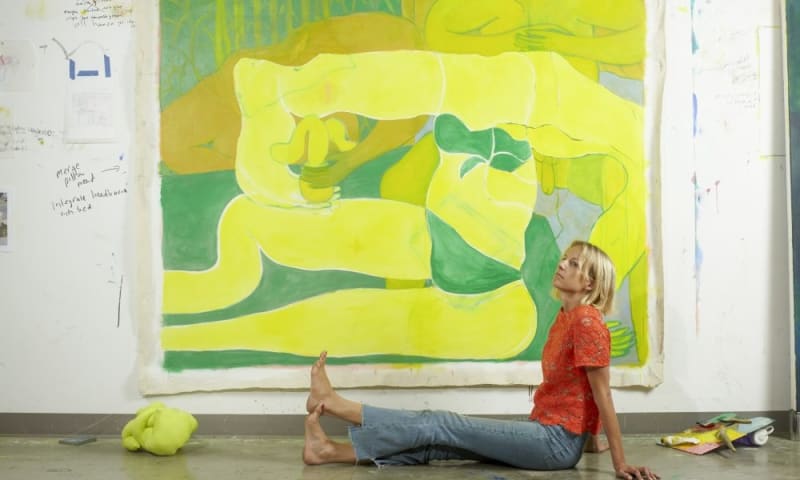Today we’d like to introduce you to Tahnee Lonsdale.
Tahnee, please share your story with us. How did you get to where you are today?
I haven’t always painted, and I never saw myself as an artist growing up. I was more interested in words and writing stories. Art took me by surprise. I guess I was guided into it by a fantastic art teacher at the school, and I was drawn to the liberal way of teaching and the freedom it evoked. I liked the smell of the art department and it was always warm for some reason (a real bonus when facing English winters).
Painting must have taken hold at some point as I ended up going to art school. After dropping out from my first choice and disappearing around the world for a year, I re-enrolled in a different school and it took. I stayed there for four years. There was a lot of torture to it, confidence-killing critiques and freezing cold studios, but I loved that for the most part, you were left to your own devices, and we’re free to create whatever you needed/wanted too.
I created a pretty average degree show which didn’t give me the best start in the art world. My average grade leads to lots of drinking and cursing but eventually, I got back on the horse and have continued to paint ever since. Persistence has been the key. My work has definitely developed and found its voice.
A move to LA three years ago from London has been a big turning point in my practice. It forced me out of my comfort zone and made me think about what was really interesting to me and what I really gave a shit about. I’ve also met a lot of amazing people and artists, Pretty sure LA is my home now.
Overall, has it been relatively smooth? If not, what were some of the struggles along the way?
It’s been pretty consistent in that I haven’t ever stopped painting, but it has been slow and at times, very frustrating. The need for recognition from others or a sense of fulfillment within myself doesn’t often come when you ask for it, but when you least expect it. The only advice I have is to not stop, ever.
Please tell us about your work.
I’m a painter. I work mainly in oil and on canvas.
My work is about sex, gender narratives, and female empowerment.
Focusing on the idea of gender roles and how they play out behind closed doors, I use furniture as a reference to domestic life;
I photograph discarded sofas, armchairs and mattresses. They have a human quality; there’s a sense that I have disturbed an intimate moment. In the act of documenting these scenes, I have become the voyeur.
From these photographs, I make paintings. Some are very similar in their composition to the original assemblage, whilst other have unraveled into purely figurative works, varying between lethargic oafs copulating and lithe bodies in sensual acts of intimacy. They still bare the bones of their domestic origins but their curves and shapes have transmuted to become scenes of an often sexual nature.
I have a pre-occupation with the female nude, and a caution around the male body. Perhaps, it’s the familiarity of naked women or the lack of a male presence in the domestic terrain.
The women in my paintings seem to be evolving and gaining strength. The obvious references to furniture are relaxing and what is left is a figure in a position of power and freedom.
Like their bulky origins, they remain robust, yet soft in their femininity.
From these photographs, I have gone on to make paintings. Some are very similar in their composition to the original assemblage, whilst other have unraveled into purely figurative works, varying between lethargic oafs copulating and lithe bodies in sensual acts of intimacy. They still bare the bones of their domestic origins but their curves and shapes have transmuted to become scenes of an often sexual nature.
Often it feels as if the media, by and large, is only focused on the obstacles faced by women, but we feel it’s important to also look for the opportunities. In your view, are there opportunities that you see that women are particularly well positioned for?
For me, being a woman is integral to my work, it is my main resource.

